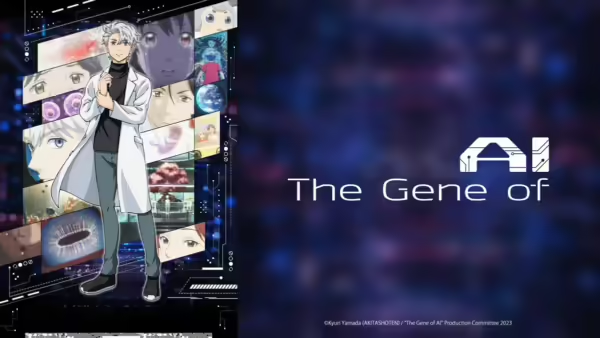
By Nathan Lin
The Japanese cartoon, Gene of AI, available on Crunchyroll, is set in the future where ten percent of the population are humanoids with artificial intelligence (AI). They are robots that are almost exact copies of real humans. In their world, cybercrime and viruses are enormous problems that not only affect computers but humanoid AI as well. As AI technology progresses, we can expect more and more fictional scenarios such as this to grace our storytelling, and every advancement we make makes copying human consciousness into AI more nonfictional than ever.
So what would happen if we start downloading our brains into robots?
In early April 2022, Elon Musk, Billionaire Space X CEO, was reported on CNBC to have announced that eventually, we may be able to live forever by uploading our minds into robots. Of course, we will be unable to transfer our entire consciousness, but our personalities and memories are preservable. Musk implies this technology will be a gradual evolution of computer memory when he speaks about how phones and computers have amplified communication by a hundredfold, which he compared to magic.
Michael S.A. Graziano, a psychology and neuroscience professor at Princeton University, in a 2019 Wall Street Journal essay, wrote that two pieces of technology would be required for mind uploading: an artificial brain and a scanner of a brain that measured how its neurons connected to each and the ability to be able to recreate the pattern in the artificial brain. Graziano states that the creation of the artificial brain would be simple but an extremely powerful scanner would be required to process the data of human consciousness in a format that is transferable to an artificial brain. Optimists say mind uploading will be possible within a few decades, but Graziano would not be surprised if it took centuries.
Even if the mind-uploading process becomes possible, what happens if the humanoid AI obtains a virus, or worse, a hacker starts controlling the AI? One possible solution is that society would have evolved the capability of having a specialist able to fix the problem. However, as technology develops, the bugs and glitches that come with it also advance. AV-Test, a well-known IT security institute, registers over 450,000 new malicious programs every day. Currently, the firewalls installed to combat their programs are winning, but what could happen if one slipped through? Furthermore, what unknowns could happen if an experienced hacker invades and ruins the computer inside the humanoid AI?
Despite these potential dangers, there is also great potential to use this technology in positive ways that can benefit humanity and help our species progress like never before. Great minds like Elon Musk or Tim Bernes-Lee, the inventor of the internet, would be able to continue their work and give us major scientific breakthroughs. An ideal Sci-Fi world would be in the palm of our hands. And within this society, our loved ones would always be with us through the possibility of transferring their memories and personalities into an AI. The prospective use of this technology will allow us to advance light years further than we ever envisioned.
Although only a dream, it is attainable. Technology has been growing exponentially since the early 20th century, and it does not seem to be halting anytime soon. Sooner or later, as implied by Musk, we will not just be like magicians, we will be those magicians. But nothing comes without dangers; the evolution of hackers and viruses will proliferate. If we continue along this cumulative road, mind-uploading will not be that far-fetched a vision, it will be one within reach–and so will all the positive and negative consequences that come with it.








